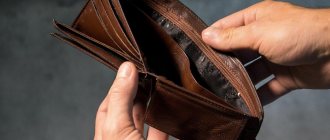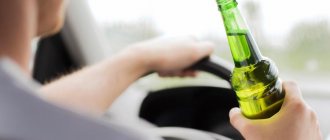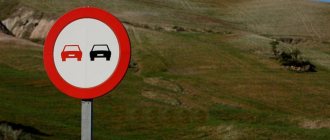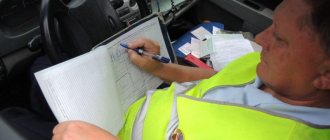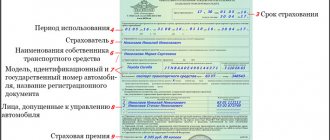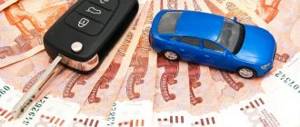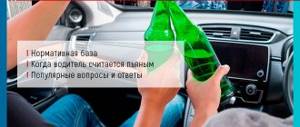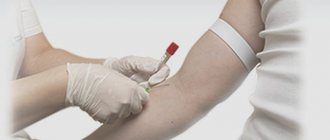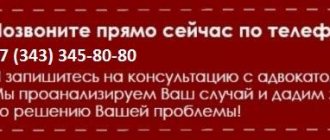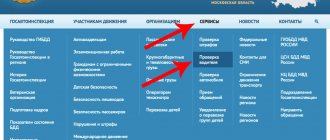When is it impossible to avoid imprisonment for intoxication?
There is only one subtlety when you will no longer be able to avoid deprivation of your license for alcohol - this is missing the deadline for appealing the judge’s decision. If you have already had a trial, and the decision of the first court has already entered into legal force, then it will be almost impossible to appeal it.
The effective date is 10 days from the date of the deprivation decision.
Is it possible to restore the terms and avoid deprivation? Yes, but only if there are serious reasons for missing out (being in an unconscious state, a natural disaster that made it impossible to deliver correspondence and your transportation to court, etc.).
In what cases can you lose your license for drinking?
Driving while intoxicated is a violation for which punishment is provided only by means of restraint. This means that no inspector can, by law, draw up administrative material if your breath simply smells of alcohol, your gait is unsteady, or you behave inappropriately. This will require an examination, which can be carried out in 2 stages, but more on that below.
Moreover, drinking alcohol before getting behind the wheel is not prohibited at all. You cannot drive a vehicle while intoxicated - with alcohol in your body. And permissible thresholds are nothing more than the permissible error of the values of measuring instruments.
And these two meanings depend on what exactly is being sampled:
- exhaled vapors : they must contain up to 0.16 (not inclusive) milligrams per liter of air,
- blood : up to 0.3 grams per liter of blood.
Measuring alcohol in the blood during examination began quite recently - on August 3, 2021.
If you are caught driving and at least one of the values exceeds the permissible limit, then your driver's license may be taken away.
In order to understand how to avoid penalties for alcohol if you are caught drunk driving, you need to thoroughly understand the procedure for conducting an examination. The presence of procedural errors during its conduct is a serious and significant chance to avoid unlawful deprivation (after all, the examination was carried out illegally).
Caught drunk driving: what the law provides
Punishments and penalties for violations on the road are regulated by two main legal acts: the Administrative and Criminal Codes. Which of them the driver will be judged on depends on how serious the violation was and in what race it occurs.
In practice, if a driver is caught drunk driving for the first time, penalties stipulated in the Administrative Code of the Russian Federation will be applied to him. Which in turn provides:
- Collection of a fine in the amount of 30 thousand rubles;
- Deprivation of a driver's license for a period of one and a half or two years.
If the violation of driving a vehicle while drunk was not committed for the first time, the Criminal Code is applied to the punishment. Here the fines and deprivations will be much more serious. Thus, the law provides:
- A significant fine - from 200 to 300 thousand rubles;
- In this case, you can lose your rights for up to three years;
- Also, in particularly difficult cases, the court may decide to impose forced community service on the driver or imprisonment for up to 2 years.
From the above, one immediately notices the difference between the severity of punishments under the two legal acts. We can conclude that it is better not to drive drunk during the second race.
Note!
A repeat offense is considered to be a violation that was committed for the second or subsequent time within one year from the date of termination of the punishment imposed for the previous violation of traffic rules.
Important note!
- This article provides basic information, but each case is different.
- In 92% of all situations there are important nuances that can affect the outcome of the entire case.
- An experienced lawyer will study all the materials of the case and indicate in which direction to move.
Therefore, our website employs on-duty legal consultants who delve into each case and are aimed at solving it.
Ask a Question
or consult toll-free (Moscow), (St. Petersburg), 8 (all of Russia).
How should a test for intoxication be conducted?
Its procedure is quite complicated for the inspector, and in more than half of all cases, traffic police officers make mistakes that can and should be caught on in order to avoid deprivation of rights for driving while intoxicated.
This procedure is regulated by Order No. 664 and its Administrative Regulations, as well as Order of the Ministry of Health No. 933N.
- If a driver is suspected of being intoxicated after stopping while driving, the inspector is obliged to find out the presence of at least one of the signs of this: the smell of alcohol on the breath,
- instability of posture,
- speech disorder,
- a sharp change in the color of the skin of the face,
- behavior that is inappropriate to the situation.
- the driver disagrees with the breathalyzer results,
And it is the violation of this particular order by the inspector that can help avoid deprivation of your license for driving while intoxicated, since it is the errors that do not allow you to reliably determine and establish whether the driver is intoxicated that directly affect your salvation, because any doubts about the guilt of the person are interpreted in favor of this person (presumption of innocence in the Code of Administrative Offenses).
Everything you need to know about medical examination
The medical examination takes place in two stages: the first procedure is carried out by an inspector on site, the second (if necessary) by a doctor in a medical institution.
An employee of the State Traffic Inspectorate first of all removes the driver from driving a car, then checks him for the presence of alcohol intoxication.
For this purpose, a special device is used - a breathalyzer.
The procedure is carried out in the presence of two witnesses, who must subsequently sign the protocol. These must be adult citizens, whose full names are also recorded in the document.
The presence of witnesses is not necessary when video recording of the examination process is carried out. This rule has been in effect since 2016.
Breathalyzer requirements:
- supports the function of printing a results report on paper;
- the error does not exceed 10%;
- the inspector must demonstrate to the witnesses and the car owner being inspected the integrity of the device seal;
- the tip is unsealed only before the test, which confirms its sterility;
- the inspection is carried out only after notifying the driver and attesting witnesses about the principle of conducting the examination in accordance with the legislative norms governing this issue.
Based on the results of the inspection, the inspector draws up a report, which is signed by attesting witnesses, the traffic police officer himself and the driver.
If the latter does not agree with the data received, he has the right to refuse to sign, which is recorded in the protocol. In such cases, he is sent for a medical examination, where the offender is sent accompanied by an inspector.
In a medical facility
Medical examinations can only be carried out in licensed institutions.
The presence of witnesses at this stage is not provided for by law.
The doctor also samples exhaled air with a breathalyzer. The interval between the first and second test is 15-20 minutes.
The therapist or narcologist also visually assesses the driver’s condition (checking the reaction of the pupils, attention, coordination, behavior, and so on).
It is mandatory to examine the results of blood and urine tests to determine the content of alcohol, opiates, alkaloids and other substances. The examined citizen is considered sober if the proportion of alcohol in the exhaled air does not exceed 0.16 mg/l, and there are no prohibited substances in the biological materials.
If a medical examination does not confirm the fact of alcohol or drug intoxication, the inspector must take the driver to the place where the vehicle was left. If the result is positive, the traffic police officer fills out documents to initiate a case to bring the offender to administrative responsibility.
What can you do before the court to protect yourself from deprivation?
If you have been caught driving while drunk and are now awaiting trial (only judges can issue deprivation orders, and the inspector can only draw up a report on the road, which is submitted to the court), then you should pull yourself together and prepare written petitions . They are written in free style in the name of the judge who is presiding over the case and are essentially similar to a statement of request (the judge can reject requests, but only for motivated reasons).
So, if the main task in order to avoid deprivation of rights for alcohol is to look for serious errors during the examination, then your task now is to ensure that the court requests the maximum possible amount of information about your case for this procedure and invites the maximum number its participants.
What should the court ask for if a medical examination took place?
- request documents confirming the existence of an order from the chief physician for admission to the employee’s blood sampling procedure, if blood was drawn (blood can only be taken by a person authorized by the chief physician),
- documents on storage of seals on urine or blood samples,
- a list of workers who took samples for storage, and another petition to invite these workers to court as witnesses,
- certificates and approvals of the doctor who has already specifically carried out the examination,
- a copy of the medical institution's license.
What should I apply for if I was only tested for alcohol on the road?
- to summon the traffic police officer(s) who carried out the examination to court,
- about calling witnesses, if they participated, or attaching a video recording (yours, if you filmed the examination, and this must be done),
- on the inclusion of your witnesses in the case materials, who will indicate what you did before and whose testimony will prove that you did not drink alcohol before driving,
- on the inclusion of documents for the breathalyzer device into the case materials: verification certificate, instructions.
How to avoid deprivation of your license for drunkenness?
This can be done for various violation reasons. Let's give them the maximum number, and your task in court is to find out their presence and, most importantly, to convince the judge that these errors and violations cast doubt on the correctness of the examination and, as a result, cannot reliably establish the fact of intoxication, and any doubts your guilt is interpreted in your favor (Article 1.5 of the Administrative Code).
So, below we list all the violations that, according to judicial practice in 2021, should entail avoiding punishment in the form of deprivation of rights for drunkenness if you are caught driving drunk. We will also provide references to rulings and decisions of courts, in particular, the Supreme Court, the results of which are required to be guided by lower authorities (but, of course, not unquestioningly make identical decisions).
If the roadside inspection procedure itself is violated
- The required interval of 15-20 minutes between samples of exhaled air was not observed (compared to the time in paper “receipts” of the device) - Resolution of the Supreme Court of the Russian Federation No. 11-AD15-34 and No. 46-AD16-24.
- If attesting witnesses have different signatures in protocols or other documents - RF Armed Forces No. 5-AD16-213.
- If the disk with a video recording of the situation on the road turned out to be unreadable in court or the traffic police inspector lost it.
- If the protocol does not contain the time of examination, or the protocol of suspension and the protocol of referral or report indicate different times.
- If the act indicates the alcohol concentration not in mg/l, but in other values - for example, in ppm (it is not always possible to avoid deprivation on this basis) - RF Armed Forces No. 82-AD17-1.
- The examination procedure is incorrect. If a protocol of referral for a medical examination is drawn up first, and then an examination report is drawn up, then the order is violated.
Breathalyzer violations on the road
- Humidity, temperature and other weather conditions were not acceptable for operating the device.
- There are no printed results from the device at all or they are lost.
- There is no driver data, date and time, date of calibration and verification, if according to the technical characteristics of the device they should be printed, or if they were entered by the traffic police officer himself.
- If the device data is not included in the inspection report.
- “Falsification” of a certificate is expressed in the form of slipping in a certificate other than the required one - about the conformity of the type of measuring device.
- If the breathalyzer certificate does not comply with GOST No. 50444-92 (this GOST is not specified in the certificate).
- If the device is not registered as a medical device.
- If the breathalyzer is not sealed (very often on this basis it is possible to avoid deprivation of rights for alcohol) - it does not have the corresponding verifier’s mark.
- If the verification was carried out by an organization not accredited for this purpose.
- If the verification is simply overdue (a very good reason to cancel the deprivation) - RF Armed Forces No. 18-AD11-8.
- There is no signature on the verification certificate.
Violations during medical examination
- If the inspector sent for a medical examination without carrying out the procedure on the road.
- The laboratory does not have a license or if such a license has expired.
- If the medical examination was carried out in a mobile laboratory, but the requirements of Order No. 933N were not met.
- The doctor does not have a certificate of completion of training.
- If the medical institution did not sample the driver’s exhalation, but immediately took urine or blood to test for alcohol and drugs.
- The examination report was not signed by the doctor.
- In the conclusion of the examination, the act does not contain the direct words “The state of intoxication has been established.”
- If, after taking air, urine or blood was not taken - judicial practice of the RF Armed Forces No. 82-AD17-1.
It is important to understand that all of the above violations will not lead to a 100% cancellation of the deprivation of rights as such if you are caught drunk. This depends on the individual judge and the totality of such violations - the more there are, the higher the chance of avoiding deprivation. However, it should be understood that judges make decisions based on personal conviction based on all the facts being examined. Plus, they are not always without sin. Therefore, sometimes you will have to appeal the decision of the magistrate in the district higher court.
Like the first time
For example, decisions of the Supreme Court regarding those drivers who were caught driving while intoxicated are literally pouring in. And not for the first time and before the expiration of the sentence.
Such decisions will continue to be made. There are quite a lot of cases on this issue.
Let us recall that before July 1, 2015, the Code of Administrative Offenses provided for two types of punishment. For those caught for the first time, a fine of 30 thousand rubles and deprivation of rights for one and a half to two years. For those who are caught again - a fine of 50 thousand rubles and deprivation of rights for three years.
A repeated violation was considered to be committed not only during the deprivation of rights, but also within a year after the culprit received his driver’s license back.
However, on July 1, the Code of Administrative Offenses removed the provision for repeated violations under this article and moved it to the Criminal Code. Thus, a driver caught for repeated drunk driving must be held accountable under a criminal article, which provides for a fine of up to 200 thousand rubles, or even imprisonment of up to two years.
So, the following situation has developed in Russia: changes in legislation occurred on July 1. But before this date, many drivers were caught driving drunk for the second time. Moreover, the trials in their cases took place after the amendments to the law came into force.
But this is where a legal issue arises. The fact is that the amendments that have entered into force cancel Part 4 of Article 12.8, which provided for increased punishment for repeated violations. But they are introducing amendments to the Criminal Code, according to which such repeated violation is already prosecuted under a criminal article. That is an even more serious punishment.
The perpetrators of violations who found themselves in this transition period from one punishment to another found themselves in a difficult situation. On the one hand, they committed a violation when one norm of the law was in force, on the other hand, new norms should be applied to them.
In this situation, the Supreme Court made a rather democratic decision. At the end of January 2015, a certain Lavrenov fell into the hands of traffic police officers very early in the morning. The result of this meeting is obvious. The driver was detained and sent for a medical examination, which revealed alcohol vapors. But, as the case progressed, traffic police officers learned that he had already been deprived of his license for driving while intoxicated and the period of deprivation of rights had not expired.
During a medical examination, the driver was found to have 0.24 mg of alcohol per liter of exhaled air. Let us remind you that you cannot be held accountable for device readings of 0.16 mg/l and below. All this together served as a reason for the court to declare him a drunk driver.
But the judges disagreed on the punishment. The Supreme Court ruled that at the time of his second DUI on July 1, 2015, he was still disqualified. First he appealed one court decision, then the second. But by the time the court made a decision on administrative liability, it was excluded from the code. And criminal liability came into force after the commission of the offense.
According to the conclusion of the Supreme Court, due to the fact that the offense occurred before the new amendments to the Code of Administrative Offenses came into force, he should not bear criminal liability.
Let's explain it in our fingers. Driver “A” was caught driving drunk in 2013. At the end of 2014, he received his license back by providing a certificate and passing a theoretical exam. In April 2015, he was caught drunk again. A year has not passed since the execution. So there is a repeat violation. But while the trial is taking place, July 1 comes, which brings drastic changes to the laws: repeat drunkenness is a criminal offense, and for the same violations the article in the Code of Administrative Offenses is abolished. For those who were caught before the first of July, criminal charges cannot be applied, because this would increase liability. But the article of the Code of Administrative Offenses for repeated drunk driving cannot be applied to them, because it has been abolished since July 1. And the provisions of the law mitigating liability also have retroactive effect.
In general, this casuistry is quite difficult to understand. It is important that those who find themselves in the transition period will receive some kind of bonus in the form of another fine of 30 thousand rubles and deprivation of rights for a year and a half.
By the way
Only since July 1, 2015, according to traffic police statistics, more than 10 thousand people were repeatedly caught drunk or refused a medical examination.
For comparison: in 2014, just over 12 thousand orders were issued for repeated drunkenness. However, this year, those who refused a medical examination for the second time were added to those deprived of their rights for drunkenness. And we had more than half of us who wanted to avoid examination.
Will a lawyer help me?
Definitely yes. Just not necessarily a lawyer, it can be a person with the usual status of a defense attorney at your request for his involvement, who will help you regain your rights.
It is important to understand that a lawyer with experience in such cases is much more likely to “pull out” your case and help you avoid deprivation of your license for alcohol intoxication than you yourself. But it is equally important to choose the right car lawyer - with a large “piggy bank” of won cases. You can find out about his experience on the website of the legal proceedings database by simply entering the lawyer’s name in the search field, as in the screenshot below.
We also have a separate article on avoiding criminal prosecution for intoxication.
Results
This way, if you are subject to a DUI suspension, it can be avoided. How you can avoid losing your driver's license is another question. DUI license revocation cases are not easy to win.
Each case of deprivation of a certificate is unique in its own way. Thus, a detailed analysis of evidence and careful preparation of documents come first.
By building an active line of defense, you can refute the fact of alcohol intoxication in court. This means that you will not be subject to deprivation of your ID.
